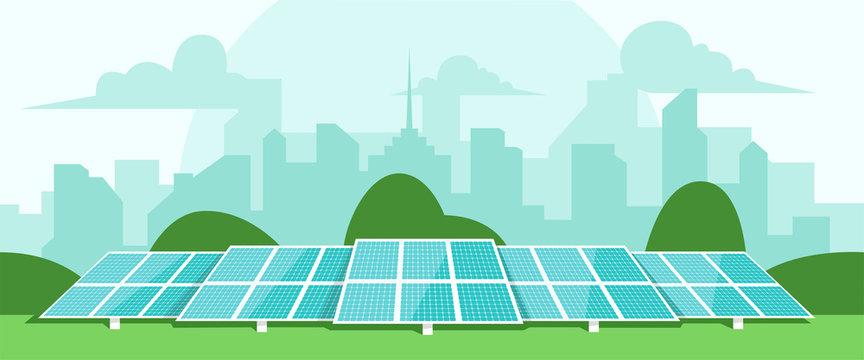As energy demands increase and environmental concerns grow, renewable energy sources like solar power have gained immense popularity. Solar panels, once considered a niche technology, are now accessible to homeowners and businesses alike. By harnessing sunlight, solar energy offers a clean, reliable power source that reduces reliance on fossil fuels, lowers energy costs, and decreases greenhouse gas emissions. This article explores the advantages of solar power, the process of installing solar panels, and tips on selecting a trustworthy solar panel installer.
Why Go Solar?
Opting for solar energy has numerous benefits. Here are some compelling reasons why homeowners and businesses are choosing to go solar:
-
Lower Energy Bills: Solar panels allow homeowners to generate their own electricity, reducing dependency on the grid and lowering monthly energy costs. Over time, these savings can be substantial, especially for households or businesses with high energy needs.
-
Environmental Impact: Solar power is a clean, renewable source of energy that does not produce greenhouse gas emissions. By reducing reliance on coal and natural gas, solar energy contributes to a significant reduction in pollution and helps combat climate change.
-
Energy Independence: With a solar panel system, homeowners gain a degree of energy independence. By generating electricity onsite, solar users are less affected by fluctuations in energy prices and power outages, which can be particularly advantageous in remote or disaster-prone areas.
-
Increased Property Value: Solar installations are seen as a desirable feature in homes and businesses. Studies show that properties equipped with solar panels often have a higher resale value, appealing to eco-conscious buyers who seek energy-efficient homes.
How Solar Panels Work
Solar panels generate electricity through photovoltaic (PV) cells, which convert sunlight into direct current (DC) electricity. An inverter then changes the DC into alternating current (AC), making it suitable for powering appliances and other electronics in homes and businesses. Excess electricity generated by the system can be stored in batteries for later use or, in grid-tied systems, fed back into the grid, often generating credits on electricity bills.
Solar panels are most effective when placed in areas with high sun exposure, like rooftops or open ground. Optimal placement and angling are crucial to ensure maximum energy generation, which is why professional installation is essential for long-term efficiency.
Types of Solar Panel Systems
There are three main types of solar panel systems:
-
Grid-Tied Systems: These are connected to the local power grid, allowing any surplus energy generated to be fed back into the grid. Homeowners can benefit from net metering, which provides credits for excess electricity produced.
-
Off-Grid Systems: Designed for complete energy independence, off-grid systems use batteries to store electricity for use when sunlight is unavailable. This setup is ideal for rural or remote areas without reliable access to the grid.
-
Hybrid Systems: Hybrid systems combine the benefits of both grid-tied and off-grid systems. They remain connected to the grid but include battery storage, providing power in the event of a grid failure and enabling users to store excess energy.
Important Considerations Before Installation
Before investing in a solar panel system, consider the following:
-
Energy Needs: Calculate your household or business energy consumption to determine the appropriate system size. This ensures that you’re generating enough electricity to meet your needs while avoiding overinvestment.
-
Roof Condition and Orientation: The roof’s condition, pitch, and orientation will impact the installation process and energy output. Ideally, solar panels should be installed on south-facing roofs with minimal shading.
-
Financial Incentives: Research available incentives, tax credits, and rebates in your area. These can significantly reduce installation costs and improve the system’s return on investment.
-
Maintenance Requirements: Solar panels generally require minimal maintenance, but occasional cleaning and inspections are recommended to ensure they operate at peak efficiency.
Finding a Reliable Solar Panel Installer in Scarborough
Choosing a reputable solar panel installer in Scarborough is crucial for a successful installation. A skilled installer will assess your property, provide a system tailored to your needs, and ensure compliance with local regulations. Look for installers with strong industry experience, proper certifications, and positive customer reviews. They should offer a detailed quote and a clear timeline, ensuring transparency and setting expectations. Working with a knowledgeable, reliable installer is the best way to achieve maximum efficiency and value from your solar system.
Conclusion: Embracing Solar Energy
Solar energy is an investment in both sustainability and savings. By switching to solar power, homeowners and businesses reduce their energy costs, contribute to a cleaner environment, and increase property value. In areas like Scarborough, where sunlight is abundant, solar power can be particularly effective, offering long-term benefits for property owners and the planet alike.
With the help of a trusted solar panel installer, the transition to solar energy can be seamless, empowering property owners to embrace renewable energy and gain energy independence. Investing in solar power is a proactive step towards a greener, more resilient future. As technology continues to advance, the benefits of solar energy are only expected to grow, making it a wise choice for today and tomorrow.



